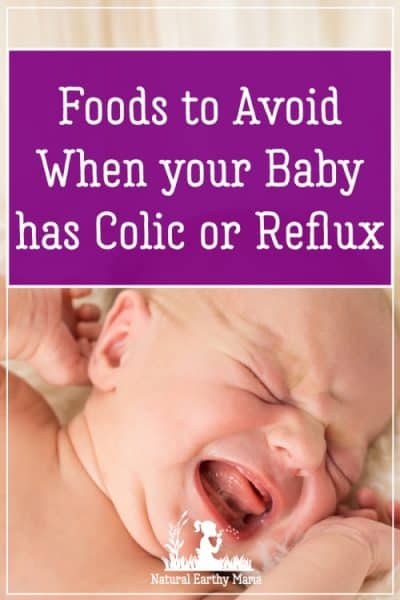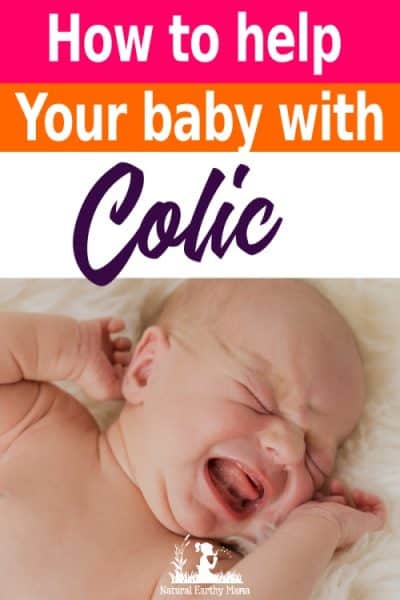 Generally speaking if you are breastfeeding, your baby will tolerate most foods that you eat. However, if your baby is struggling with wind, colic or eczema there are some common suspects that you will want to be avoiding.
Generally speaking if you are breastfeeding, your baby will tolerate most foods that you eat. However, if your baby is struggling with wind, colic or eczema there are some common suspects that you will want to be avoiding.
Below is a common list of foods to avoid if your baby has gas or skin problems.
When your baby is young, their immune system and their gut are still in their immature, formative state. This means that they can react strongly to some foods, and cannot cope at all with others.
Please read: This information is provided for educational purposes only and is not intended to treat, diagnose or prevent any disease. We encourage you to make your own health care decisions in partnership with a qualified health care professional.
This post contains affiliate links, this means at no extra cost to you, we make a commission from sales. Please read
our Disclosure Statement
There are some foods that all breastfeeding mothers should be limited while breastfeeding anyway:
Coffee – babies cannot metabolize caffeine like we can, so limit your intake to 3 or less cups per day.
Deep-sea Fish – due to the mercury and other heavy metals in these fish it is best to limit eating them to 1-2 times per week.
Alcohol – There is some debate around how much is still safe to feed, and your breast milk concentrations match your blood alcohol level almost exactly so you can “pump and dump” or you can wait for your blood alcohol levels to return to lower levels before feeding your baby.
RELATED: Ultimate guide to breastfeeding
The benefits of changing your diet while breastfeeding to help with gas in your baby
Changing your diet while breastfeeding may seem like a big deal, but actually in the scheme of things, if it helps your baby sleep better, it is probably worth it right?
Changing your diet is only temporary – you can try it for a week or two and if it makes no difference, you can go back to eating the foods.
It is easier to change your diet to look for simple food intolerances in your baby than it is trying to medicate the problem without removing the cause first.
I could stop you having to use medication all together!
Changing your diet will not negatively affect the baby, and for you it is at worse a mild inconvenience.
RELATED: Breastfeeding essentials
What foods affect breastfeeding babies
Babies are gassy by nature due to their immature gut biome and a belly that is just learning to process nutrients.
If your baby seems to be very gassy, unhappy, colicky, or has acid reflux or eczema, the most common cause for all of these things is dairy.
Common foods that cause gas in breastfed babies are:
- Broccoli
- Onion
- Cauliflower
- Cabbage
- Peppers
- Brussel sprouts
- Cucumber
- Beans
- Lentils
- Garlic
- Cumin
- Curry
- Red Pepper
- Dairy – yogurt, cheese, milk, cream, ice cream
Foods To Avoid To Treat Colic in Babies
Colic is defined as crying. A lot. 3 hours of crying at least 3 days a week for at least 3 weeks. There is no medical explanation for colic, though the 4th trimester theory provides some great insights.
Some suggested causes of colic are:
- Gas pains
- Gut spasms
- Gut migraines (there is a link between colic as a baby and migraines as an adult)
- Oversensitivity to stimuli
- Food sensitivities (there is a link between gluten and dairy intolerances and migraines – see above)
There are definitely some diet changes that are worth trying if your baby is struggling with colic.
RELATED: Breastfeeding benefits for mom
Diet to prevent colic in breastfed baby
Pay attention to your baby’s reactions to the following foods when you eat them. If you notice a reaction within a few hours, limiting these foods might be helpful.
- Citrus fruits (oranges and grapefruit)
- Tomatoes
- Strawberries
- Dairy
- Nuts
- Shellfish
- Caffeine
- Beef
- Dairy
- Corn
- Egg whites
- Gassy vegetables (broccoli, cabbage, onions, cucumber, peppers, cauliflower)
- Wheat
Foods To Avoid When Your Baby Has Acid Reflux
I can attest that certain foods can cause heartburn in adults, these same foods can trigger reflux in babies!
Try avoiding all of these foods if you are breastfeeding for a couple of days, then re-add them one at a time and see how your baby responds.
- Dairy
- Caffeine/coffee
- Citrus
- Pineapple
- Tomato
- Strawberries
- Vinegar/pickles
- Spicy foods/curry
- Sweer carbonated beverages
- Fatty foods/Fried foods
- Starchy foods – bread, rice, pasta, potatoes
- Baking
- Alcohol
- Fruit juice
Foods To Avoid When Breastfeeding A Baby With Eczema
Eczema is a genetic condition that is often triggered by an underlying food (or environmental) intolerance.
If it is a food allergy or sensitivity that is causing your baby’s eczema, it is likely to be caused by one of the following common allergenic foods:
- Dairy (some tolerate goats milk fine though)
- Eggs
- Shellfish
- Fish
- Wheat
- Nuts – especially peanuts
- Tomatoes
- Citrus
- Berry fruit
- Soy
Tips for relieving Gas in Babies
Give extra tummy time
This encourages lots of leg wiggling and a little additional belly pressure from lying on it can help force that gas out
A warm bath
Warm water is always soothing and calming, and again the extra leg movement can help shift that gas.
Baby massage
Nothing like a soothing belly rub when it is sore. Use clockwise strokes to encourage that gas to move across, down and out!
Bicycling baby’s legs
Gently cycling baby’s legs like they are riding a bike while they lay on their back can be very effective. Watch out this can cause poo-explosions!
Windi
The Windi is a very effective way of relieving gas brought to you by the developers of the nose freda
Baby Probiotics
Probiotics are live bacteria that help to provide a good balance of organisms within our digestive systems. I used Biogaia and found it helped.
Gripe Water or Colic Calm
These magical combinations help the gas form larger, more cohesive balls so they are more easily expelled.
Foods to Avoid if You are Breastfeeding
If you are breastfeeding and your baby is struggling with colic, gas, reflux or eczema, try removing these foods from your diet for a week or so, and slowly re-introduce them one at a time.
Keep a food and baby diary so you can notice correlations if and when they occur.
I feel for you, having been there myself, I totally understand and empathize with you!





